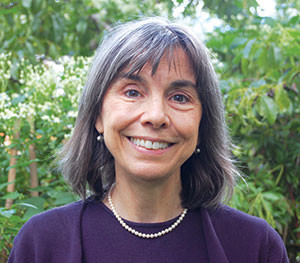
27th Middlesex District State Rep. Denise Provost has concerns about proposed changes in MBTA transfer pricing policies.
By Josie Grove
On June 4, Governor Charlie Baker announced a ‘winter resiliency’ plan to prepare for next winter. In a statement issued last week, Governor Baker connected the $82.7 resiliency funding to the MBTA reform bill (H.3347) currently under consideration at the statehouse.
“These investments and contingency plans are important for day-to-day operations and emergency service,” according to State Representative Denise Provost. “But, without the flexibility and dedicated oversight of a Fiscal Management and Control Board and the reforms we outlined, the T will continue to fail its stress tests for commuters and taxpayers who deserve a reliable world class transit system.”
Provost sees the two measures as contradictory. She says the MBTA reform bill would cut $100 million from the system’s budget. “Now he [Governor Baker] has proposed $83 million for winterization. Why cut it in the first place? Why cut money from MBTA and then make this request for winterization?”
The reform bill aims to clearly separate operating and capital expenses, and perhaps that is how the governor justifies the seemingly contradictory proposals. But for Provost, funding the MBTA needs a more innovative approach than rearranging funding. “Looking at possible economies makes sense, but it’s a pretty stripped-down system,” Provost said.
Provost says that since the MBTA cannot decrease expenses it has to look at increasing its revenue. The MBTA has been funded by fares, revenues from ad sales and rent from businesses in the stations, taxes from areas served by the MBTA, and dedicated revenue streams from the state sales tax and the gas tax.
This patchwork of funding has grown sparser in the last decade, according to Provost. Sales tax used to contribute more to the MBTA budget, but with the current budget, only 9% of the MBTA’s revenue will come from sales tax. This shift has been a big part of the T’s struggle to be properly funded. “When Internet sales became a bigger and bigger part of household spending, revenue projections went down,” she said. In other words, the MBTA’s slice of the pie did not shrink: the whole pie got smaller every year because the state lost sales tax revenue to Internet sales.
This unreliable revenue stream has contributed to the T’s increasingly decrepit infrastructure, and the problems the transit system experienced last winter. “We did not raise revenue enough to keep it in a state of good repair. Just to keep it in good repair,” said Provost.
Both the reform legislation and the winter resiliency funding aim to keep the T in better shape. But Provost does not want riders to bear the brunt of the cost. To increase revenue from riders, the reform bill would make it possible to raise fares, and to remove the system of subsidized transfers.
Removing subsidized transfers has become one of the more controversial points in the MBTA reform bill. Currently, a rider changing from the subway to the bus does not pay a bus fare, and a rider changing from the bus to the subway pays the $0.50 difference between the fares. The reform bill removes mention of that system from the current law. This opens the door for the MBTA to charge a rider the full $1.60 bus fare or $2.10 subway fare to make the transfer, doubling the cost of a transit trip.
Massachusetts Department of Transportation representative Michael Verseckes says, “The Administration is completely committed to ensuring that any new policy designed includes provisions that preserve existing free or discounted transfers.” But critics question the necessity of removing subsidized transfers from the legislation, if the MBTA does not intend to change the policy. Verseckes adds that change in the legislation is long due. “The transfer language in the existing statute was written when fares were collected from tokens and paper tickets were issued for transfers.”
Provost objects to the possibility of removing subsidized transfers from the system, saying, “Eliminating subsidized transfers hurts people who can least afford it. The representative sees the removal of subsidized transfers as one example of how reform bill places much of the burden for funding the system on everyday riders. Fairness is important, and the least-fair ways to get increased revenues is to keep increasing fares for regular riders.”
The reform legislation, responds Verseckes, “has the goal of giving the maximum amount of flexibility to a new policy.”
Provost thinks the Department of Transportation needs to be even more flexible in its plans to fund the MBTA. “There’s other models of nontraditional revenue generation,” she says. The representative has several suggestions of ways to augment the MBTA’s revenue without increasing fares.
“The T is a big landowner. We should be looking at how it utilizes its real property assets. For example, the open parking lot at Sullivan Square. It’s an inefficient use of urban land.” Provost suggested it be redeveloped into something more profitable, such as a parking ramp with offices on the upper floors. “The important thing would be to increase the value, and to make it revenue-positive.”
Another of Provost’s ideas is lowering the fares during off-peak hours. This counterintuitive proposal could increase ridership, increasing the system’s revenue. “Lowering off-peak fares is an inducement for people to use the T. Encouraging people to travel by rail, if it’s cheaper, fills otherwise empty cars on the weekends.” She added that reduced fares could be especially attractive for families using the commuter rail to go to popular tourist towns, like Salem.
Provost also suggested that large private and nonprofit institutions contribute more to transportation funding, since they rely on the MBTA to transport their students and workers. “I personally think some of the big nonprofits, especially the universities, should get more involved in transit provision for their students,” she said.
However the system changes, Provost thinks it needs to find new sources of revenue, not a new governing body. “The problem with the MBTA is underfunding.”















Reader Comments